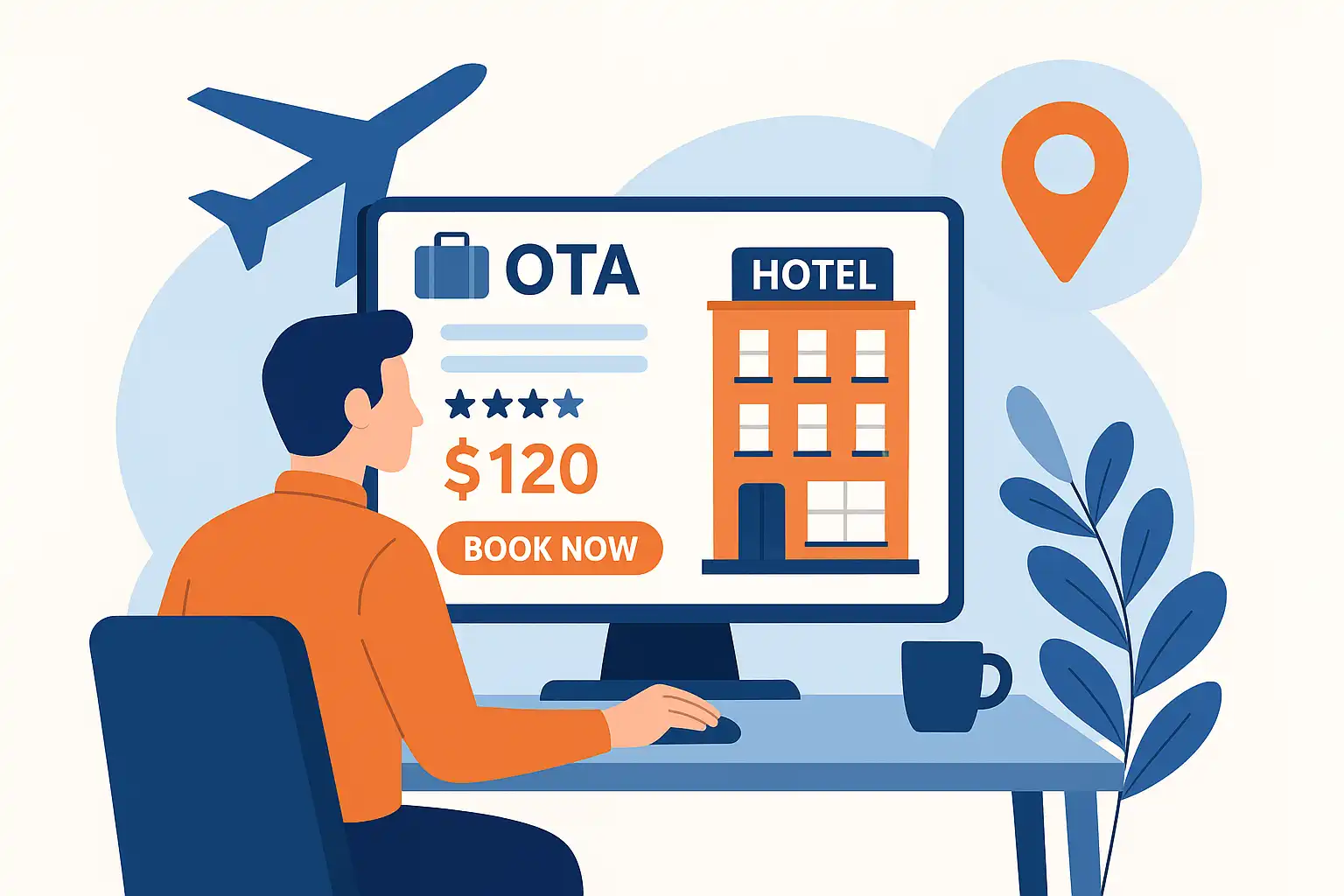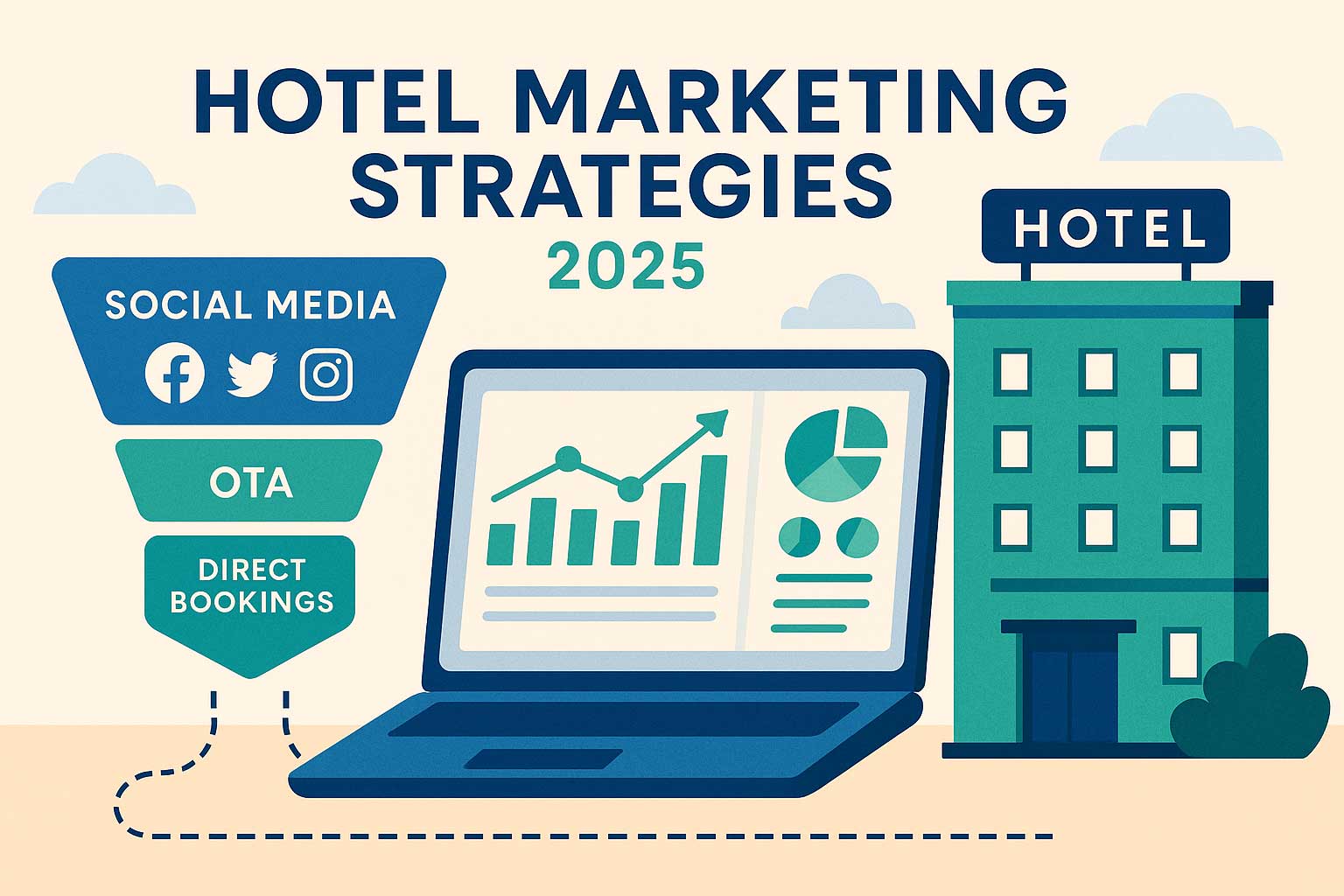How to Personalize Guest Journeys with Limited Data in Independent Hotel PMS
Aug 2, 2025
 Mika Takahashi
Mika TakahashiPopular Categories
Hotel Technology & InnovationHotel Operations OptimizationDigital MarketingIndustry TrendsRevenue ManagementHospitality Industry
Popular Categories
Trending Post

Hotel Walk Letter Template: Professional Guest Communication

Online Travel Agents: What They Are and How They Work

Hotel Security Systems: Modern Protection Solutions

Hotel Advertising: Complete Guide to Boost Bookings and Revenue

25 Hotel Marketing Strategy Ideas for 2025: Complete Guide

AI Reservation Agent: Revolutionizing Hotel Booking and Guest Experience

PMS Communication: Streamlining Property Management Through Effective Guest Messaging
Table of contents
Guest personalization is a powerful way for hotels to stand out, drive loyalty, and boost direct engagement. By anticipating guest needs and preferences, independent hotels can create meaningful, tailored experiences that make guests feel recognized and valued.
While large hotel chains may have more data and tech resources, personalization doesn’t require volume—it requires strategy. For boutique and independent hotels, thoughtful use of PMS data, CRM integration, and AI tools can deliver high-impact results. In this article, we explore five practical tactics to personalize guest journeys, even with limited data.
Why Guest Personalization Matters in Independent Hotels
Guest personalization is a key strategy for boutique hotels to compete effectively with larger chains. While smaller hotels typically have access to less data and fewer resources, smart personalization tactics allow them to make that data work harder and deliver standout service that drives guest satisfaction and loyalty.
Independent hotels benefit from personalization by:
- Fostering Loyalty and Repeat Stays: Personalized service makes guests feel valued, helping build emotional connections and long-term brand loyalty.
- Increasing Direct Bookings and Revenue: Personalized communication encourages guests to book directly and respond to targeted upsell offers, reducing OTA dependence and boosting profitability.
- Meeting Rising Guest Expectations: As travelers have more choices, including vacation rentals, expectations for personalized hotel experiences have grown. Tailored interactions can significantly improve satisfaction and reviews.
- Gaining Competitive Recognition: Personalized, attentive service helps independent hotels stand out, creating memorable guest experiences that drive word-of-mouth and brand recognition.
By focusing on guest personalization, independent hotels can build stronger relationships, differentiate through service, and maximize the value of the limited data they already have.
Understanding Data Constraints in Independent Hotel PMS
Independent hotels often have limited guest data, which naturally restricts their ability to personalize at scale. Smaller booking volumes mean fewer data points to analyze, making it harder to identify patterns, segment guests, or build detailed guest profiles over time.
In addition, many boutique hotels lack integrated systems. Guest data is often spread across the PMS, booking engines, and email platforms, and staff may resort to manual data collection during check-in or via email. This approach is time-consuming, inconsistent, and difficult to scale. Without complete or unified data, hotels risk delivering generic experiences that miss the mark. Understanding these limitations helps independent hotels focus on practical, achievable tactics using the data they do have.
Tactic 1: Maximizing PMS Data for Guest Personalization
Independent hotels may have limited data, but strategic use of key PMS fields can still drive impactful, data-informed personalization. Here are some of the key PMS data points to consider:
- Guest names: Use names in greetings, emails, and in-room notes—bonus points for recognizing all family members or companions, not just the booking guest.
- Stay history: Identify repeat guests and tailor messaging with “welcome back” notes, loyalty perks, or complimentary upgrades.
- Booking source: Introduce OTA guests to direct booking benefits, while offering loyalty incentives or upsells to direct bookers.
- Room preferences: Ensure comfort by assigning preferred room types or amenities on future stays, without guests needing to request them.
- Feedback and reviews: Use guest comments to personalize future experiences. For example, a guest who praised the rooftop bar could receive a welcome note and a complimentary drink voucher when they return.
There are also a few low-effort, high-impact data collection tactics for independent hotels to consider:
- AI Booking Assistant: Capture guest preferences during booking, such as arrival time, travel purpose, or amenity choices.
- Pre-arrival emails or surveys: Gather preference details (e.g., pillow type, dietary needs) and engage guests before arrival.
- Wi-Fi login portals: Collect basic guest info and preferences during sign-in, with optional demographic fields.
With smart and consistent use of these data points and tools, independent hotels can deliver personalized, data-driven experiences without needing complex systems or large datasets.
Tactic 2: Integrating PMS with CRM for Smarter Personalization
Integrating PMS and CRM systems unlocks powerful personalization capabilities for independent hotels. With unified guest data and streamlined communication, hotels can deliver more relevant and timely guest experiences.
Practical applications of CRM‑PMS integration include:
- Automated pre-arrival emails tailored to guest type, preferences, or booking source.
- Targeted upsells based on past behavior, such as room upgrades or spa services.
- Loyalty offers triggered by repeat stays, milestone events, or special occasions.
Modern solutions like Prostay Nexus offer seamless, cost-effective integration—accessible even to boutique hotels—without the need for complex IT setups.
With integrated systems, independent hotels benefit from:
- Unified guest profiles: Consolidate booking, stay history, and communication into one view, enabling deeper insights and personalized service at every stage of the guest journey.
- Centralized communication and preference tracking: Store all guest interactions (e.g., emails, messages, feedback) in a single platform for consistent, personalized messaging across all touchpoints.
CRM‑PMS integration empowers hotels to scale personalization efficiently, enhancing both guest satisfaction and operational efficiency.
Tactic 3: Leveraging AI and Automation to Fill Data Gaps
AI can help predict guest preferences even with minimal data, allowing independent hotels to fill data gaps and enable smarter personalization. Key benefits of AI integration include saving staff time, automating data collection, and scaling personalized service, empowering boutique hotels to grow efficiently, despite smaller teams and limited resources.
These AI tools can support independent hotels:
- AI Booking Assistant: Dynamically adjusts room offers, add-ons, and messaging based on limited data inputs such as booking source or stay history.
- Chatbots and messaging tools: Engage guests in real time to collect preferences, answer questions, and enrich guest profiles in real time.
Tactic 4: Low-Lift Personalization Tactics That Deliver High Impact
Not all guest personalization tactics require system data. Rather, some of the most memorable guest experiences come from attentive, thoughtful service. Independent hotels can train staff to spot opportunities for personalization based on real-time interactions. For example:
- Recognize special occasions: Note birthdays, anniversaries, or honeymoons mentioned during check-in and surprise the guests with an amenity, personalized note, or upgrade.
- Tailor recommendations in conversation: Suggest local attractions or dining based on guest interests shared at arrival, such as the best restaurants for business or family travelers.
- Respond to guest cues: Adjust service based on real-time preferences, such as preferred room temperature, housekeeping timing, or other specific requests.
- Empower staff to personalize: Encourage team members to note small details, like favorite drinks or activities, for future visits.
These low-lift, high-impact actions help independent hotels stand out through service, leaving guests feeling seen and appreciated, without relying on extensive data or automation.
Tactic 5: Measuring and Refining Personalization Efforts
To ensure personalization efforts are effective, independent hotels must track key performance metrics derived from PMS data and guest feedback, creating feedback loops for continuous improvement
Here are some essential metrics to monitor:
- Guest satisfaction scores: Gather insights from post-stay surveys and online reviews.
- Repeat booking rates: Measure guest loyalty over time.
- Upsell conversion rates: Track revenue impact from personalized offers.
Collect guest feedback and use it to refine both real-time personalization strategies and guest profiles. Updating profiles with new insights helps tailor future experiences more accurately.
To continuously optimize personalization efforts, lean into AI tools that can uncover behavior trends and predict preferences from limited data. CRM‑PMS integration is key for hotels to test, analyze, and refine personalized messaging and offers, creating a cycle of ongoing optimization and ensuring personalization remains relevant, scalable, and guest-focused.
Conclusion
With a strategic approach, independent hotels can deliver high-impact guest personalization, even with limited data. The key is to make smart use of available PMS data, leverage AI tools, and integrate CRM systems, while ensuring staff are equipped to act on guest insights thoughtfully and consistently.
Ready to personalize more effectively? Explore Prostay’s tools to optimize your data and guest experience, or book a free demo to get started.
